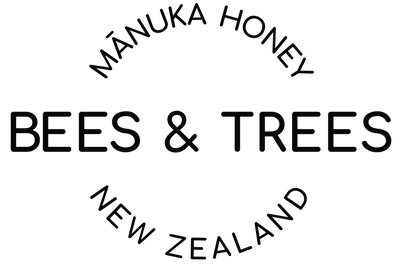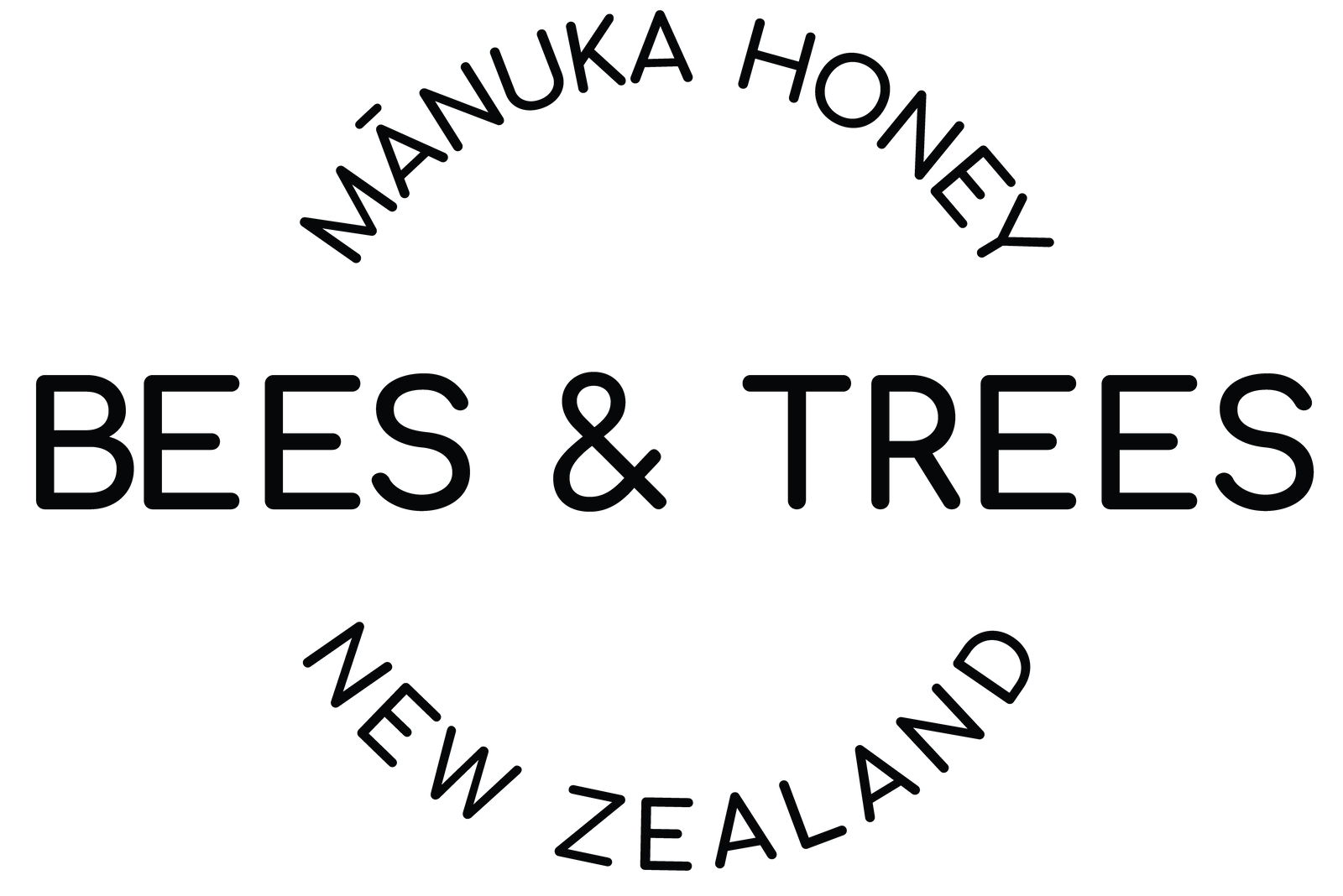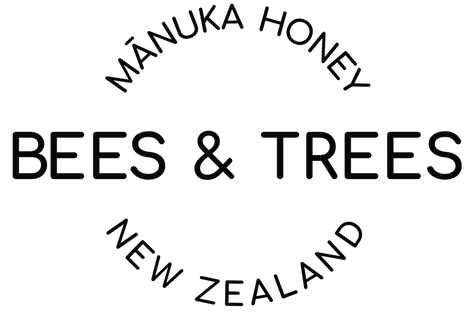Raw Manuka honey isn’t just a sweet indulgence — it’s widely regarded as one of nature’s most unique and potent honeys. Sourced from the nectar of the Leptospermum scoparium (mānuka) tree in New Zealand, it has long been used in traditional Māori medicine and has attracted increasing scientific interest.
Unlike ordinary honey, raw Manuka honey is unpasteurized and rich in naturally occurring compounds, including methylglyoxal (MGO), which researchers have linked to strong antibacterial properties. While not a substitute for medical treatment, growing evidence suggests it may offer therapeutic benefits for skin health, wound care, digestion, and immune support.
In this article, we'll first examine what makes raw Manuka honey distinct in terms of its composition and quality, and then explore how these properties translate into specific therapeutic uses supported by current research.
What Makes Raw Manuka Honey Different from Regular Honey

When it comes to honey, not all jars deliver the same benefits. Raw Manuka honey is distinct in origin, composition, and quality standards, which may explain why researchers continue to study it for potential health applications.
1. Unique Origins and Chemical Composition
Manuka honey is produced by bees that forage primarily on mānuka trees, which are found in specific regions of New Zealand. This monofloral source gives it a consistent chemical profile. It is especially rich in methylglyoxal (MGO), a compound widely studied for its antibacterial activity (Manisha Deb Mandal et al. 2011).
Researchers have noted that MGO levels in Manuka honey are substantially higher than in conventional honeys and may be more stable over time than hydrogen peroxide, which is the primary antibacterial agent in most other honeys.
2. Raw and Minimally Processed
Raw Manuka honey is typically unpasteurized and lightly filtered to retain natural enzymes, antioxidants, and pollen. In contrast, most commercial honeys are pasteurized to improve shelf life and appearance, but this process may reduce beneficial properties (Noori S Al-Waili 2004).
As a result, scientists suggest that raw honeys like Manuka may offer stronger bioactivity than their heat-treated counterparts.
3. Certified for Potency
Unlike regular honey, Manuka honey is independently lab-tested for Methylglyoxal (MGO), the active organic compound that correlates to its wellness benefits. The MGO content can be found directly on the label, sometimes accompanied by an industry rating factor like a UMF value. By understanding these numbers, consumers have a standardized way to assess its potency and therapeutic potential.
Products with MGO levels of 250+ (correlates to a UMF 10+) and above are often considered the most appropriate for health-supportive uses.
Potential Health Benefits of Raw Manuka Honey
Researchers have explored Manuka honey’s potential across a wide range of health areas—from wound care and digestive support to immune health and even cancer research. While most results to date are from laboratory, animal, or early human trials, the findings are consistently promising.
Manuka honey owes its benefits to powerful natural compounds like methylglyoxal (MGO), flavonoids, and phenolic acids, which together provide strong antibacterial, anti-inflammatory, antioxidant, and tissue-healing properties.
To learn more about what makes this honey so unique, see our guide: 👉 Raw Manuka Honey vs Regular Honey
A. Strong Clinical Evidence
1. Wound Healing and Infection Protection
Scientific research suggests that Manuka honey can speed up the healing of cuts, burns, and ulcers. It does this by:
-
Killing bacteria that can infect wounds, including drug-resistant strains like MRSA (Galit H Frydman et al. 2020)
-
Reducing inflammation, which allows skin tissue to repair more quickly
-
Keeping wounds moist and protected, which helps cells regenerate
Medical-grade Manuka honey is now approved for use in wound care in several countries, including the U.S. It is a key ingredient in various sterile dressings for chronic or post-surgical wounds. (Md Lokman Hossain et al 2021)
Explore more on this topic: 👉 Healing with Manuka Honey
2. Soothing Sore Throats and Coughs
Manuka honey has long been used as a remedy for sore throats, and studies suggest it may:
-
Coat and soothe the throat, reducing irritation
-
Fight infection thanks to its antibacterial action
-
Suppress coughing, sometimes better than over-the-counter medications (Mohamed Qasim Toorani et al 2018, Oduwole O et al 2018)
Clinical guidelines in the UK even recommend honey as a first-line treatment for children’s coughs (over age one).
For home remedy ideas, check out: 👉 Natural Cold Relief with Manuka Honey
B. Emerging Clinical/ Lab Evidence
3. Digestive Wellness
Manuka honey may help your gut by:
-
Inhibiting Helicobacter pylori, a bacteria linked to stomach ulcers (Roland N Ndip et al., 2007).
-
Reducing inflammation in the digestive tract, possibly relieving symptoms of gastritis or IBS
-
Acting as a prebiotic, encouraging the growth of healthy gut bacteria
While these effects have mainly been observed in lab or early-stage studies, the results are encouraging for people with stomach sensitivities.
4. Oral Health Support
Studies show Manuka honey may help support healthy gums and teeth. It works by:
-
Inhibiting harmful oral bacteria like Streptococcus mutans that cause plaque and cavities (English et al., 2004)
-
Reducing inflammation in the gums
-
Promoting the healing of minor mouth ulcers or sores
Unlike refined sugar, Manuka honey doesn't fuel bacterial growth, making it a rare sweet treat that can actually help your mouth.
Learn more in our article: 👉 Can Honey Help Oral Health?
C. Preclinical Research
5. Skin Care and Acne Management
Applied to the skin, Manuka honey may help with:
-
Clearing acne-causing bacteria
-
Reducing redness and swelling through its anti-inflammatory action
-
Supporting skin healing, even in sensitive or dry areas (Burlando et al. 2013)
Some people use Manuka honey as a spot treatment or in masks for clearer, calmer skin.
Find out how to use it topically: 👉 How to Use Manuka Honey for Skin
6. Immune and Antioxidant Effects
Manuka honey is rich in antioxidants, including enzymes and polyphenols that:
-
Protect cells from oxidative stress, a contributor to chronic illness and aging
-
Modulate immune responses, helping the body maintain balance during illness (Masad et al., 2021)
Some studies suggest it may help reduce inflammation and support immune health when taken regularly.
D. Emerging Research: Cancer and Chronic Conditions
Recent research is beginning to explore Manuka honey’s potential role in more complex health issues, such as:
-
Cancer cell inhibition – Lab studies suggest Manuka honey may help trigger apoptosis (cell death) in some cancer cells, particularly in breast and colon cancers (Afrin et al., 2018; Cianciosi et al., 2020)
-
Enhancing chemotherapy – Some lab and animal studies show it may increase cancer cells' sensitivity to drugs like 5-FU and doxorubicin, while protecting healthy tissue (Sadia Afrin et al. 2018)
-
Immune support during treatment – A 2024 mouse study showed that oral Manuka honey enhanced anti-tumor immune responses and slowed tumor growth (Razan J Masad et al 2024).
Though these are early findings, they’re exciting. Manuka honey is not a treatment for cancer, but research supports its potential as a complementary aid to promote wellness and recovery alongside conventional therapies.
Explore the science here: 👉 Manuka Honey vs. Cancer: What We Know So Far
Everyday Uses of Manuka Honey in Natural Health
Incorporating Manuka honey into daily routines is one way people seek to support their health. While individual results may vary, the following uses are among the most common:
Wound and Skin Treatment
Applied topically, Manuka honey may assist with minor cuts, scrapes, or burns. Medical-grade dressings with Manuka are often used in clinical settings, while raw honey may be used for home care when approved by a healthcare provider.
Cough and Throat Soothing
A teaspoon of Manuka honey in warm water or herbal tea is a traditional remedy that many find effective for mild throat irritation. Its soothing texture and bioactive properties may help calm inflammation and discomfort.
Digestive Aid
Some people take Manuka honey before meals or on an empty stomach to ease acid reflux or gastrointestinal irritation. Limited clinical evidence supports this practice, but anecdotal reports and early research are encouraging.
Oral Rinse or Gum Health Support
Used in small amounts, Manuka honey may help support gum health when gently swirled in the mouth or used in conjunction with brushing. Choose a high-quality, raw Manuka honey to ensure bioactive content.
How to Select High-Quality Manuka Honey
Because Manuka honey is a premium product, ensuring its authenticity is essential. Here’s what to look for when choosing the best honey for your needs:
1. Independent Lab Testing and Grading
Always choose a Manuka honey with a high MGO level (or corresponding UMF™ rating) clearly stated on the label. MGO is measured in mg/kg, the higher the concentration of MGO, the greater the bioactive compounds suitable for therapeutic use. A 550+ MGO rating is considered a potent Manuka honey helpful for many applications (this correlates with a UMF rating of 16+).
2. Raw and Unpasteurized
To maximize potential health benefits, opt for raw Manuka honey. Raw honeys retain beneficial enzymes, antioxidants, and bee pollen that are often diminished through heat processing.
3. Verified New Zealand Origin
Authentic Manuka honey is produced in New Zealand. Look for origin guarantees like the FernMark symbol or Oritain traceability, which confirm the honey’s geographic and floral source.
Why Bees & Trees Is the Benchmark for Manuka Honey Quality
Among the many brands on the market, we stand out for our unwavering commitment to quality, transparency, and purity. At Bees & Trees, our goal is to provide authentic, raw Manuka honey that meets the highest standards of integrity and therapeutic value.
Independently Lab-Tested for Potency
We independently test every batch of our Manuka honey for MGO and other key bioactive compounds to ensure potency and consistency. Lab results linked to batch numbers are available to you, so you always know the strength and quality of what’s inside each jar.
-
Explore our lab testing & batch traceability process.
Single-Origin and Sustainably Sourced
Our honey is harvested from remote, native mānuka forests in Taranaki, New Zealand. We practice ethical beekeeping—our bees are placed in clean, isolated areas in some of the most pristine NZ wilderness to forage. The rich diversity of nectar and pollen sources they are exposed to over the course of the year promote bee health. .
-
Learn more about our sourcing and story.
Raw and Unpasteurized
We keep our honey raw and unpasteurized to preserve its natural enzymes, antioxidants, and beneficial compounds.. Every jar delivers a true monofloral Manuka experience.
-
Discover the benefits of raw Manuka honey.
Certified Authenticity You Can Trust
We’re proud to carry certifications that guarantee the authenticity, traceability, and potency of our Manuka honey:
-
NewZealand.com License No. 100293: This unique license number corresponds to our FernMark certification—the New Zealand government's formal seal of approval. It’s your verifiable proof that our Manuka honey is authentically sourced, harvested, and packed in New Zealand under strict national quality standards.
-
GenuHoney™ Authenticity Certified: This seal confirms our honey has passed independent, third-party testing to verify its authenticity. It’s your guarantee that every jar contains 100% pure, unadulterated Manuka honey, free from any syrups, additives, or impurities.
-
Glyphosate Residue Free: This certification guarantees that our Manuka honey is free from the world's most common herbicide. It reflects our commitment to absolute purity and our bees' access to pristine, non-agricultural environments, ensuring you receive a product that is truly clean and natural.
-
100% Satisfaction Guaranteed: We have complete confidence in the exceptional quality and effectiveness of our Manuka honey. This is our ultimate promise to you—if you're not fully satisfied with your purchase for any reason, we will make it right. It's a risk-free way for you to experience the best.
-
Read more about our certifications and quality promise.
Whether you’re looking to support everyday wellness or use Manuka honey as a natural complement to your health routine, you can trust that our honey is honest, effective, and expertly crafted. From hive to jar, we do it right—so you can feel confident in every spoonful.
The Final Word: Why Raw Manuka Honey Deserves a Place in Your Wellness Routine
Raw Manuka honey is a rare and remarkable natural product. While not a substitute for professional medical treatment, studies suggest it may support wound healing, aid digestion, soothe sore throats, and contribute to skin and oral health.
Its strength lies in its origin, minimal processing, and the unique compounds that distinguish it from regular honey.
If you're considering adding Manuka honey to your wellness routine, choosing a high-quality, certified product is essential. Bees & Trees Manuka Honey offers raw, lab-tested, single-origin honey that reflects the best of this extraordinary food.
As research continues to uncover its full potential, Manuka honey remains one of nature’s most intriguing health allies - sweet, soothing, and possibly far more than just a pantry staple.





